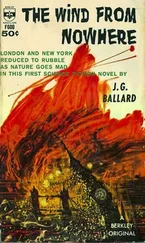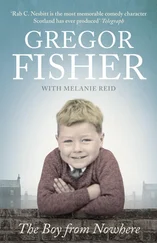Falling away from the ridge was a gradual slope, covered by the rocks of an ancient lava flow. Here and there pines grew and the McWilliams riders were scattered behind the rocks and trees, shooting steadily. Their concealed positions allowed for movement, and as Oates watched, they advanced slowly up the hill, taking advantage of any cover.
Time was running out for the lone rifleman.
Oates considered opening up from where he was, but that would immediately attract the attention of four guns and, out in the open as he was, he could end up being shot to pieces.
Ahead of Oates the trail curved around two massive boulders, a grotesquely twisted pine growing in the notch between them.
Making up his mind, he covered fifty yards of flat ground and dived behind the rocks. Beyond was what he had hoped to see—four horses standing head-down at the edge of the trail.
He rose to his feet and levered a round into his rifle. When he was a few yards from the horses he fired between them, kicking up dust at their feet. The animals stood, ground-tied, right where they were.
Cursing, his hands shaking, Oates fired again—with the same result.
Outlaw mounts were trained to stand, no matter what, and these four were no exceptions.
“There’s somebody at the horses!” came a cry from the slope.
Suddenly a man was running toward him, a rifle in his hands. Oates levered a round and he and the man shot at the same time. A bullet drove Oates’ hat from his head, but the gunman was hit hard. He staggered back a step, crashed to the ground and his Winchester rattled down the slope.
Oates heard a shot followed by a shriek from somewhere higher up the slope; then he was running for his life. He plunged headlong into the trees, turned and dropped to one knee.
Two men came down the slope opposite, one sliding all the way on his rump, and ran for the horses. They mounted quickly, threw a quick glance at Oates, then slapped spurs to their mounts and galloped away.
Oates sprinted from the piñon and fired a couple of parting shots to keep the fleeing gunmen honest. Then his eyes lifted to the ridge. He saw no one and nothing stirred up there but the wind.
He climbed the slope and checked on the man he’d shot, a lean, hawk-faced youngster whom Oates recognized immediately. He was Mash Halleck’s son Reuben.
His face grim, Oates understood the implications. He had no doubt that the McWilliams riders had recognized him. By all accounts Mash was a vengeful man and there was no backup in him. He’d avenge the death of his son and keep on a-coming until he did.
Mash had been an enemy before; now he’d be a nemesis from hell.
Oates didn’t recognize the other dead man sprawled on the slope. He climbed up to the crest of the ridge and looked around. The mystery man was gone, his passage marked by a cloud of dust that was now sifting to the ground.
Whoever he was, he’d been wounded. He’d been hit during his fight on the ridge or sometime before. Blood spattered the rocks where he’d lain and a trail of scarlet spots in the sand led to where he’d mounted his horse.
How badly was the man hurt? There was little blood, but that didn’t mean much. He might only have been winged. But then, a gut-shot man doesn’t bleed out either.
Oates made his way back down the slope. He picked up his hat and wiggled a finger through the bullet hole in the crown. That had been too close. He set the hat on his head and mounted the paint, sitting the saddle for a few moments, undecided on his next move.
Finally he swung east again. He’d left the mesa to discover Darlene McWilliams’ whereabouts and that’s what he would do.
The sun was directly overhead and the land slumbered in the heat. Flies buzzed around Oates and tormented the mustang so that it constantly shook its head, making the bit chime. Among the trees the clear light changed constantly, shading from burnished gold to pale blue where the shadows pooled.
For a while Oates rode in the wagon tracks near the canyon rim, but then he swung wider, the heavily forested peaks of the Black Range just ten miles ahead.
There was always a chance that grim old Mash Halleck would search for his son’s body, and Oates had no desire to meet him and Clem on open ground with iron in their hands.
After thirty minutes Oates turned toward the canyon again, riding through aspen, ponderosa pine and then woods of cedar, piñon and sycamore as the high country fell away rapidly.
The air was crystal clear, spangled by shafts of sunlight, and after a mile the wide scar of the canyon came into sight. And something else became apparent—the smell of wood smoke. But this was not the scent of burning pine or creosote bush, but the harsh, acrid tang of old wood, probably oak and hickory.
Oates drew rein, looking into the quiet day. Ahead of him lay a gently sloping meadow of about ten acres, bright with the white and purple flowers of fleabane, verbena and Apache plume.
Where the meadow ended, a wooded area began and Oates was sure he saw a wisp of smoke rise above the trees.
He was not a man born to carefulness, but in this hard, dangerous land it was a trait Oates was rapidly acquiring. He scanned the meadow and the trees beyond, rested his eyes, then searched again.
Grass rippled in the breeze, tree branches stirred, but he saw no sign of humans. Sliding his rifle from the scabbard, he levered a round and kneed the paint into the meadow.
Wary now, his head moving constantly, Oates rode through the pasture and with a sense of relief reached the tree line. He swung out of the saddle and advanced on foot, leading the horse through the underbrush.
The trees thinned and to his left he saw the canopies of several cottonwoods. He turned in that direction, then stopped dead in his tracks.
What he saw horrified him.
Chapter 22
Eddie Oates took in the scene with a single appalled glance.
Near a narrow creek stood the burned-out remains of Darlene McWilliams’ wagon. But what drew Oates’ attention were the two men hanging from a cottonwood branch, their bodies gently swaying in the breeze.
He led the paint out of the trees and walked to the creek.
As he drew closer he recognized the hanged men. They were the two gunmen who had fled the fight at the ridge. Both had been badly beaten before they were strung up as their swollen, bruised faces testified.
Oates looked up at the bodies, remembering the hanging of the Hart brothers back in Alma. But the brothers hadn’t been beaten like this. The older of the hanged McWilliams men had been battered so severely, one of his eyes hung on his cheekbone
Mash Halleck had begun to take his revenge, starting with the men who had abandoned his son.
At that moment, Oates knew he could expect no mercy from the Hallecks and could expect even worse torture. Both dead men had recognized him at the ridge and no doubt had spilled the beans to Mash, perhaps trying to bargain for their lives.
Leaving the mustang, Oates stepped over to the wagon. The treasure box was gone. The money sacks were probably now in the saddlebags of Darlene and her brother.
Had she tried to stop the hanging? Oates doubted that. Darlene was a cold, ambitious woman and the deaths of two of her hired hands would mean nothing to her.
Carefully, Oates scouted the area. There were no horse tracks beyond the creek and it was plain that Darlene and her riders had turned back at this point. Heading where? Oates hoped it was all the way back to the rustled herd, but somehow he doubted that.
Suddenly he was fearful for Stella and the others. If they’d left the mesa, even for a minute . . .
Oates ran to the paint and swung into the saddle, filled with a sense of panicked urgency.
Something was wrong, very wrong. He could sense it.
Читать дальше












